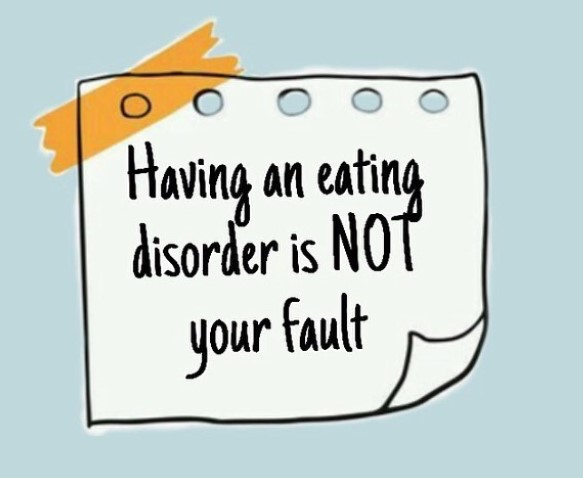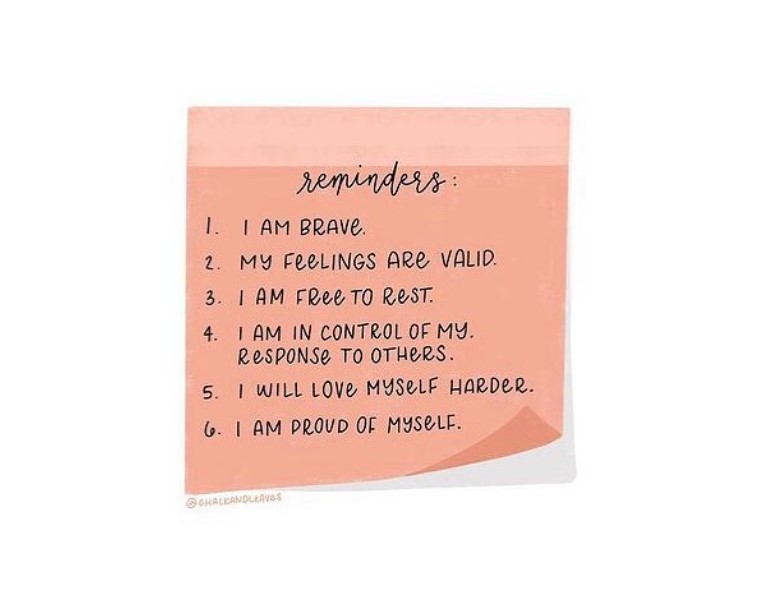Our Q&A participant, Katheryn Iu, shares how her cultural background played a role in hiding an internal struggle and her experience managing an eating disorder while being diagnosed with bipolar disorder. Katheryn is also the face behind the nonprofit F*ck Eating Disorders, also known as F*CK(ED), a platform dedicated to showcasing the rise in disordered eating content online and promoting body positive imagery and acceptance.
Q: Tell us about how your relationship with your body and eating habits first began to change. What stage of your life were you in? What major events played a role?
A: My family is East/Southeast Asian and culturally, many of us are afraid to seek professional mental health support to avoid shame, failure, invasion of privacy, or the stereotypes perpetuated in our culture. When my relationship with food and my body first began to change, I was 11 years old. At the time, there was an accumulation of neurological issues growing up but it wasn’t diagnosed. I was also doing Wushu (Chinese martial arts), clubs, and sports about 5-6 days a week back then and I developed and grew in places that I wish I didn’t at the time. Many comments about my lack of a chest and comments about my legs and arms just made me feel that my body was taking up too much space.
I already have very poor confidence and self-esteem. Despite the comments, I had already wished to be left alone. Once I was allowed access to the Internet (no social media but just general browsing and YouTube), this became a gateway to learning harmful tips to change the shape of my body. When things spiraled out of control, I saw food and weight loss as a channel to cope with suicidal thoughts and sadness. Rarely, did I ever articulate how I was feeling to any of my friends or family regarding this aspect of my life. I felt very privileged to be able-bodied, born in Vancouver, and for my family working so hard to immigrate and create a financially stable household. I didn’t want to be a disappointment for being even “weaker” than I already felt like I was. If no one knew, I thought I could carry on in privacy to be small and invisible.
Q: What were changes in your thoughts, feelings, or behaviors that you noticed during this time?
A: At the time, I was familiar with masking myself and not showing my true thoughts and feelings. There was the Katheryn I believed to me the “true” me: energetic, strange humor, straightforward and wishing to live life not bothering anyone. Then there was the “me” that was suicidal and desperately attached to an eating disorder. I think this tied into the early stages of being bipolar* but I wasn’t diagnosed until I was in my twenties. At the time, I would have my highs and be fueled by almost little to no food, however, I could still go to school full-time, work, and do extracurriculars so that I could be a good candidate for applying for university.
In terms of my thoughts, everything became very calculated. I balanced the fact that no one would know I was feeling unwell while still being a good daughter, friend, and girlfriend. Food for me became this sense of comfort and stability telling me that I am finally in full control. From the macros to the timing and finally how I could get rid of it, I fell in love with the sensation of predictability when I didn’t eat. I fell in love with hunger. Unfortunately, outside of that feeling, I don’t remember anything being enjoyable about the experience and I tried hard to be grateful for the people who were trying to celebrate or share things with me. It felt hypocritical because I’d go from telling a friend that they’re worth so much and are valuable when they’re going through a rough patch, to going home participating in self-harming behaviors. I felt guilty and hypocritical that I wasn’t coping well.
*Bipolar disorder is a mental health condition characterized by mood swings with extreme highs and lows

Q: Did your relationship with loved ones change in any way during the early stages of your journey? If so, how?
A: My family didn’t know what an eating disorder was at the time and they didn’t know that such a thing existed. In Asian culture, food is such a strong way of expressing love for us. Especially those coming from war, food scarcity and situational states of starvation, the concept of a “self-inflicted” state of hunger was unfathomable. Gradually, family meals became one of the biggest fears of the day because, even though I loved and appreciated the time it took to make these meals for us, I still refuted them as much as I could just to satisfy my eating disorder. Understandably, my family was upset and confused at the way my body and relationship with food changed.
As for friendships, I had to learn certain friends were only there for the “good” side of me. The moment I attempted to be vulnerable, I was met with instant competitiveness or disregard. Some impressionable statements were: “Oh, but you’re skinny, so you can’t be as worse as me,” “Wow, so you’re a druggie now” (referring to my overdose) or “I’m diagnosed with anxiety and your parents are better than my parents, so you have it way better.” It was these types of responses that made it harder to hold onto friends at that point. A lot of relationships did change, but I feel that the ones I have now are more authentic. I appreciated being able to be open for the first time instead of concealing the way I felt.
One of my worst fears during this early process was admitting that there was a mental health disorder. In my past, I used to ignore the concept given the minimal discussions on the topic in my family and encountering those who use the term lightly to benefit off existing programs, resources, to stigmatize the conditions, or as leverage in arguments. I didn’t want to be labelled as “a person with bipolar disorder” or “a person with an eating disorder.” I just wanted to be me. If I could choose not to have an eating disorder and be given the chance reclaim all the time I had to be a more authentic version of me, I would go back a million times over.
Q: What did loved ones do to support you that you found helpful or what kind of support do you wish you had received?
A: Recently, my bipolar manifested into more lows than highs (usually my hypomania* is more common than the lows). It was at that point that my family started realizing some things weren’t in my control because I’d often be told to just go outside or go read something in the hopes that it would just go away. People would tell me they didn’t understand why this was a long-term thing, so what happened is that when I told my family what was happening for the first time in my twenties, I was scared. I was scared because I didn’t want them to feel that this was due to their parenting or history.
A lot of times people want to find something to blame for an eating disorder, but I don’t think it was any of that. With that first conversation, my family started learning more about mental health and the resources for the first time. None of us knew what we were doing but we did it together. The bottom line is that they do love me and they figured that if this support was what I needed then they would try and I love them very much for being able to change with me.
*Hypomania is a mood state where there is increased energy, activity, excitement, and euphoria to the point of impairing judgment
Q: How long was it before you sought treatment/support? What played a role in that decision?
A: I came to a point where in university, I had already been facing the eating disorder for 11 to 12 years. As an adult at 22, I was at the peak of my hypomania. I was working, the president of my faculty at the time, volunteering, and taking full-time courses. I would even skip class sometimes so I could work. I could barely even remember that year but it resulted in the biggest crash I’d had since I was little. It led to an attempted suicide and I felt that I had lost everything I was trying to build for myself. Quickly, I attempted to carry on with life and moved forward with my practicum.
Unfortunately, an attempt was made again and I realized that I couldn’t mask myself anymore and even though I didn’t believe that I had an eating disorder, I still went for treatment. My partner had forced me to see a therapist and I was terrified of seeing a doctor or being hospitalized because I didn’t want them to take me away again from all the commitments I had. When I shared with the therapist what I was going through, I had to be enrolled in an outpatient program at VGH to treat my bipolar more so than the eating disorder initially. Surprisingly, I found that treating my psychiatric comorbidities* first actually led to my eating disorder getting better. It was eye-opening to realize firsthand how interconnected eating disorders are to increased risks of suicide and presentation of other psychiatric mood disorders. Although I consider myself more or less recovered, at times it can be hard not to miss that comfort that my eating disorder had given me for so long.
*Comorbidity is the presence of one or more conditions often happening at the same time as a primary condition/concern
Q: What resources or types of support did you find most helpful during this time?
A: Finding the right bipolar medication (Lithium/Epival*) alongside cognitive behavioral therapy (CBT) was super helpful because this gave me the consistent energy and mood stability to attend sessions, focus on work, and manage the symptoms. Previously, my brain would immediately justify that not eating would guarantee an instant improvement to other areas of my life or certain situations. Doing CBT* and channeling new behaviors instead of falling back on the same self-harming behaviors was a great step in the right path. It helped me feel more stable and I had the energy to go to therapy, which was super important.
Finding people who are also going through the same thing was also crucial to my recovery development. I started a non-profit awareness page and I met so many amazing individuals who also went through similar things and had a lot of understanding and acceptance. It was so lovely. That awareness page helped me a lot to make healthy connections and gave me the ability to share and promote resource. I am forever grateful to them and my healthcare providers at VGH SAFER program.
*CBT is a type of behavioral therapy that focuses on developing healthier ways of thinking and behaving to resolve a problem
*Lithium a first-line psychiatric medication used to treat bipolar and major depressive disorder
*Epival is a type of anticonvulsant medication used in combination with other mood stabilizers to manage bipolar disorder

Q: What kinds of self-directed behaviors did you find helpful?
A: As someone who goes through bipolar habits and behaviors, building a routine is essential. From sleeping at 4 a.m. to having a proper sleep and eating routine reduced the stresses of unpredictability in my moods and behaviors. Exercising regularly also helps me feel better with the release of endorphins and, hopefully, these habits will be natural to me one day. I used to be resentful when people would tell me to meditate or take a walk because I couldn’t understand how it could help me process trauma or negative events. My occupational therapist once said that it would be hard to see how things like that could help when I was in that current state because I was relying on my eating disorder to cope. She said that over the long run, these behaviors and habits will beneficial and my body would naturally come to terms with it as a routine and reap the rewards later.
As a current dietetics’ student, I had initially pursued the program because it was so deep into nutrition and health which helped alleviate my fear of foods. However, as time passed, I also learned that in this profession I can help advocate for healthier relationships with food, media/food literacy, abolish weight stigma, and provide nutritional care to those with disordered eating or eating disorders. As I grow professionally, I will continue seek educational opportunities to grow my competencies to and support this community fully.
About the Author

Katheryn Iu is a fifth year UBC Dietetics Practice Education student with a passion to learn the manifestations of eating disorders and mental health disorders in all genders. She has founded F* Eating Disorders, a non-profit eating disorder awareness platform after realizing how much social media and diet culture has impacted her eating disorder behaviours and body image.
Platform Bio:
F*ck Eating Disorders a.k.a. F*CK(ED), is a platform dedicated to showcasing the rise in disordered eating content online while promoting anti-diet culture and body positive imagery. With TikTok, Snapchat, Instagram, Photoshop, Facetune, and plastic surgery comes a host of social and mental health consequences, specifically, the rise in disordered eating. To fight against pro-eating disorder culture, F*CK(ED) strives to give the public media literacy, showcase recovery resources, and highlight how damaging some of the current influences, fad diets, and trends are to the mind and body. Together, we believe that society can collectively shape a future that is free from diet culture’s pressure and ideals of achieving the “perfect body.”



